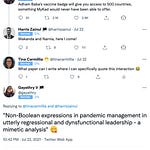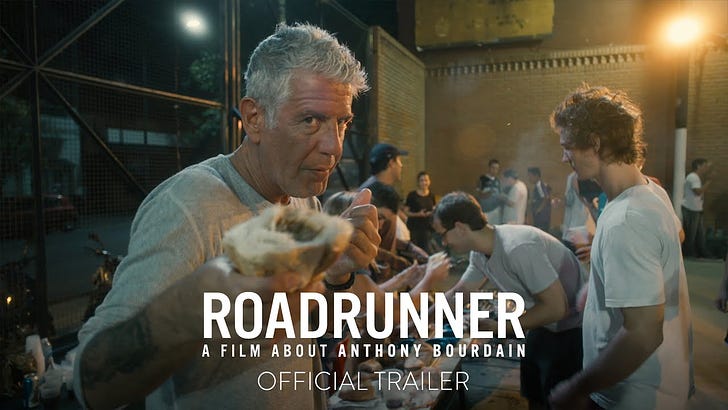This week…
The theme is how misinformation travels within diasporas and non-English communities.
And for our interview segment, I speak with Clarissa Lee, an art-science creator and researcher at Universiti Malaya and fellow at the Institute of Southeast Asian Studies, for a sneak peek into her research on Internet trolling and Malay social media. But first, a selection of top stories on my radar, a few personal recommendations, and the chart of the week.
Facebook’s failure to pay attention to non-English languages is allowing hate speech to flourish
Fiona R. Martin and Aim Sinpeng investigate “hate speech on LGBTQI+ community pages in five Asian countries: India, Myanmar, Indonesia, the Philippines and Australia” and summarise the report for The Conversation:
We concluded that Facebook’s problem is not in defining hate, but being unable to identify certain types of hate, such as that posted in minority languages and regional dialects. It also often fails to respond appropriately to user reports of hate content.
Media reports have shown Facebook struggles to automatically identify hate posted in minority languages. It has failed to provide training materials to its own moderators in local languages, even though many are from Asia Pacific countries where English is not the first language.
Going undercover to infiltrate Chinese-American far-right networks
Zhaoyin Feng for BBC:
The collaboration between former Trump adviser Steve Bannon and Chinese exiled businessman Guo Wengui is a case in point. The duo has been involved in a sprawling digital network that disseminates misinformation about election frauds, coronavirus vaccines and QAnon narratives on multiple social media platforms.
Chinese immigrants often consume news bypassing traditional media gatekeepers, according to non-profit organisation First Draft.
Due to language barriers and news habits, many in the Chinese diaspora tend to read news in closed or semi-closed social media spaces. As there is already an existing trust among participants, the subscribers treat the information with less scrutiny, giving rise to “misinformation echo chambers”.
Related, Kerry Allen and Sophie Williams for BBC: The foreigners on China’s disinformation drive.
Navigating challenges, realising opportunities of digital transformation
Khazanah Research Institute released a compilation of papers on Malaysia’s digital policies from September 2020 to April 2021 last month. Chapters of interest (to me) are six through eight, on personal data privacy, digital governance of information disorder and AI in the courts.
Meanwhile, the Global Disinformation Index and Centre for Independent Journalism Malaysia put the country’s 31 most visited news sites in English, Malay and Mandarin through a disinformation risk assessment and report that they lack operational checks and balances, particularly for “policies regarding financial transparency, editorial independence, and journalistic accountability, which are considered critical
for mitigating disinformation risk.”
What I read, watch and listen to…
I’m reading Wendy Mesley Is Not The Problem, Says Wendy Mesley, by Stacy Lee Kong on Friday Things.
I’m watching How to Become a Tyrant on Netflix.
I’m listening to Journalism.co.uk podcast host Jacob Granger speak The New Humanitarian CEO Heba Aly discuss reshaping coverage of the Global South.
Chart of the week
The simplified version of the Guo media network, mentioned in the second story above from Graphika’s report, Ants in a Web. The network produces and amplifies “mis- and disinformation, including claims of voter fraud in the U.S., false information about Covid-19, and QAnon narratives.”












